第5章
And now what time discountenanced, Wilding fumed and fretted all in vain, Sir Rowland Blake, fresh from London and in full flight from his creditors, flashed like a comet into the Bridgwater heavens. He dazzled the eyes and might have had for the asking the heart and hand of Diana Horton - Ruth's cousin. Her heart, indeed, he had without the asking, for Diana fell straightway in love with him and showed it, just as he showed that he was not without response to her affection.
There were some tender passages between them; but Blake, for all his fine exterior, was a beggar, and Diana far from rich, and so he rode his feelings with a hard grip upon the reins. And then, in an evil hour for poor Diana, young Westmacott had taken him to Lupton House, and Sir Rowland had his first glimpse of Ruth, his first knowledge of her fortune. He went down before Ruth's eyes like a man of heart;he went down more lowly still before her possessions like a man of greed; and poor Diana might console herself with whom she could.
Her brother watched him, appraised him, and thought that in this broken gamester he had a man after his own heart; a man who would be ready enough for such a bargain as Richard had in mind; ready enough to sell what rags might be left him of his honour so that he came by the wherewithal to mend his broken fortunes.
The twain made terms. They haggled like any pair of traders out of Jewry, but in the end it was settled - by a bond duly engrossed and sealed - that on the day that Sir Rowland married Ruth he should make over to her brother certain values that amounted to perhaps a quarter of her possessions. There was no cause to think that Ruth would be greatly opposed to this - not that that consideration would have weighed with Richard.
But now that all essentials were so satisfactorily determined a vexation was offered Westmacott by the circumstance that his sister seemed nowise taken with Sir Rowland. She suffered him because he was her brother's friend; on that account she even honoured him with some measure of her own friendship; but to no greater intimacy did her manner promise to admit him. And meanwhile, Mr. Wilding persisted in the face of all rebuffs. Under his smiling mask he hid the smart of the wounds she dealt him, until it almost seemed to him that from loving her he had come to hate her.
It had been well for Richard had he left things as they were and waited.
Whether Blake prospered or not, leastways it was clear that Wilding would not prosper, and that, for the season, was all that need have mattered to young Richard.
But in his cups that night he had thought in some dim way to precipitate matters by affronting Mr. Wilding, secure, as I have shown, in his belief that Wilding would perish sooner than raise a finger against Ruth's brother. And his drunken astuteness, it seemed, had been to his mind as a piece of bottle glass to the sight, distorting the image viewed through it.
With some such bitter reflection rode he home to his sleepless couch.
Some part of those dark hours he spent in bitter reviling of Wilding, of himself, and even of his sister, whom he blamed for this awful situation into which he had tumbled; at other times he wept from self-pity and sheer fright.
Once, indeed, he imagined that he saw light, that he saw a way out of the peril that hemmed him in. His mind turned for a moment in the direction that Trenchard had feared it might. He bethought him of his association with the Monmouth Cause - into which he had been beguiled by the sordid hope of gain - and of Wilding's important share in that same business. He was even moved to rise and ride that very night for Exeter to betray to Albemarle the Cause itself, so that he might have Wilding laid by the heels. But if Trenchard had been right in having little faith in Richard's loyalty, he had, it seems, in fearing treachery made the mistake of giving Richard credit for more courage than was his endowment. For when, sitting up in bed, fired by his inspiration, young Westmacott came to consider the questions the Lord-Lieutenant of Devon would be likely to ask him, he reflected that the answers he must return would so incriminate himself that he would be risking his own neck in the betrayal. He flung himself down again with a curse and a groan, and thought no more of the salvation that might lie for him that way.
The morning of that last day of May found him pale and limp and all a-tremble. He rose betimes and dressed, but stirred not from his chamber till in the garden under his window he heard his sister's voice, and that of Diana Horton, joined anon by a man's deeper tones, which he recognized with a start as Blake's. What did the baronet here so early? Assuredly it must concern the impending duel. Richard knew no mawkishness on the score of eavesdropping. He stole to his window and lent an ear, hut the voices were receding, and to his vexation he caught nothing of what was said. He wondered how soon Vallancey would come, and for what hour the encounter had been appointed.
Vallancey had remained behind at Scoresby Hall last night to make the necessary arrangements with Trenchard, who was to act for Mr. Wilding.